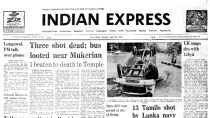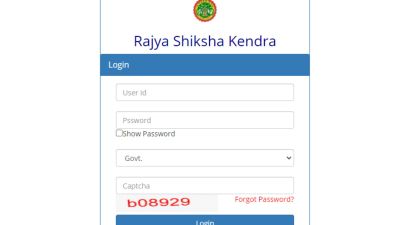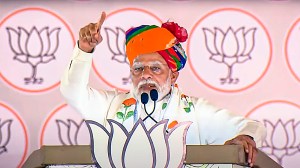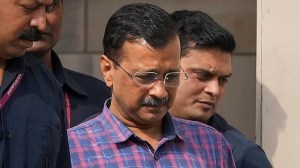- India
- International
Gujarat or Delhi, PM Narendra Modi’s dynamism and vision have marked his tenure
Sujan R Chinoy writes: As Narendra Modi completes 20 years of service to the nation, he can draw satisfaction from India’s achievements in diverse sectors.
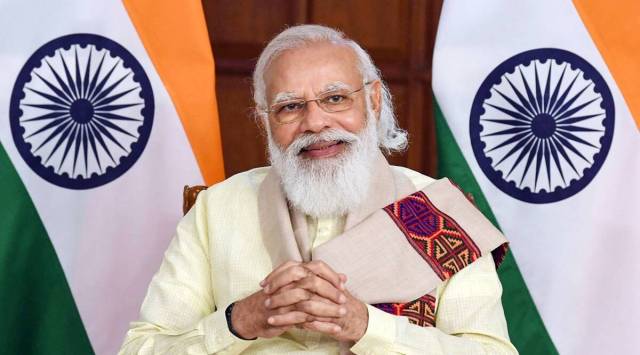 Prime Minister Narendra Modi. (File)
Prime Minister Narendra Modi. (File)Prime Minister Narendra Modi completed 20 years in public service as head of a government at the state and national level on October 7, 2021. A gifted individual of humble origin, who rose to high office by dint of hard work and sacrifice, he epitomises the aspirations of the common citizen. As chief minister, Modi injected transparency in governance. He had a global vision for his state and reached out to invite investments and best practices from around the world.
As consul-general of India in Sydney, the author received an invitation to attend the 2007 Vibrant Gujarat Summit at which Chief Minister Modi, in keeping with his usual practice, personally interacted with many of the participants, encouraging them to promote Brand Gujarat globally. During incidents of assault on Indian students in Australia in 2007-2008, Modi was the only chief minister who took personal interest in the welfare of students from Gujarat.
It was not uncommon for state government officials to receive calls from the chief minister for one-on-one discussions. They were empowered and encouraged to take decisions but also made more accountable. A patient listener, he never permitted hierarchy and red tape to stymie good ideas.
When Modi moved to New Delhi, he brought with him the same dynamism and qualities that defined his long and successful innings as chief minister. As Prime Minister, he remains down to earth, with genuine compassion for the common man. An administrator with a clear vision, he has demonstrated a pragmatic problem-solving approach in dealing with the most intractable of issues.
In personal interactions, he often startles visitors with his capacity to recall the minutest details of past interactions. He puts visitors at ease with affectionate and encouraging words.

The mandate given by him to the author on his appointment as ambassador of India to Japan was brief and to the point: To realise the fullest potential of India-Japan relations in the shortest time. His personal investment in deepening this strategic partnership has resulted in a huge upswing in India’s ties with Japan.
A key feature of the Modi government is zero tolerance for terrorism. This is unsurprising, given his long stint as chief minister of Gujarat, a border state that has often been targeted by Pakistan-sponsored organised crime and terrorism.
As PM, he has devoted his considerable energies to the challenge of achieving inclusive growth. His clarion call for Atmanirbhar Bharat, including in the defence sector, is aimed at equipping India with the necessary means to build a secure future.
 Today, India’s choices at home and externally are deeply tessellated. There is a visible expansion in India’s global engagement, including with our neighbours such as Nepal and Sri Lanka who had not received a prime ministerial visit from India in decades.
Today, India’s choices at home and externally are deeply tessellated. There is a visible expansion in India’s global engagement, including with our neighbours such as Nepal and Sri Lanka who had not received a prime ministerial visit from India in decades.
Diplomacy under PM Modi is driven by the philosophy of vasudhaiva kutumbakam (the world is one family), most recently exemplified in the Vaccine Maitri programme and the neighbourhood first policy.
Today, India has ensured a role for itself on the global stage. Personal diplomacy at the highest levels has resulted in mutually beneficial cooperation, including with many OIC countries.
On matters of personal probity, the Prime Minister has few peers. The smallest gift received in his official capacity is auctioned, with proceeds going to worthy causes.
The work ethic in his government is different. Even young officials often find it difficult to match the indefatigable Prime Minister. Foreign visits are turbo-charged with back-to-back meetings. It is not unusual for refuelling stops, even at night, to be utilised to conduct official business.
Perhaps, no other global leader anywhere in the world has paid as much attention to the protection of national heritage. The return of India’s stolen antiquities is a recurrent theme during his visits.
Among several other attributes of diplomacy in the Modi era is the resurgence of indigenous strategic culture, marking a fuller appreciation of the rich contributions of Kautilya and Thiruvalluvar, as against a blind worship of Clausewitz and Metternich. Whether at the United Nations or national parliaments around the world, Hindi, yoga and Ayurveda are manifestations of India’s growing soft power. A foil to authoritarianism, democratic India advocates the Gandhian teachings of peace and non-violence. At the same time, India today has demonstrated the resolve and capacity for robust action in the face of security threats.
Perhaps, now more than ever before, events such as Vibrant Gujarat, the Kumbh Mela, the Pravasi Bharatiya Divas and the Global Entrepreneurship Summit have provided opportunities to states to actively participate in shaping India’s foreign and economic engagement.
The high standards of public service set at the top have gradually become a new norm. Indian embassies, too, are more focussed on promoting India’s economic objectives and meeting the diaspora’s expectations.
Back home, the lateral induction of talent has breached the walls of long-entrenched interests and helped overcome the stasis and mediocrity in government departments.
As he completes 20 years of service to the nation, PM Modi can draw satisfaction from achievements in diverse sectors, whether renewable energy or sports, to cite a few. Digital empowerment of the common citizen and gender equality, including in the armed forces, are particularly progressive steps.
Notably, when leaving Gujarat for Delhi in 2014, Modi donated his personal savings to the cause of education of the daughters of the lowest rungs of the state secretariat employees. It reflected a commitment to the next generation of Indians.
This column first appeared in the print edition on October 14, 2021 under the title ‘Nine days for Devi’. The author, a former ambassador, is currently the director general of the Manohar Parrikar Institute for Defence Studies and Analyses. Views expressed are personal
EXPRESS OPINION
Must Read
More Explained
Apr 23: Latest News
- 01
- 02
- 03
- 04
- 05











